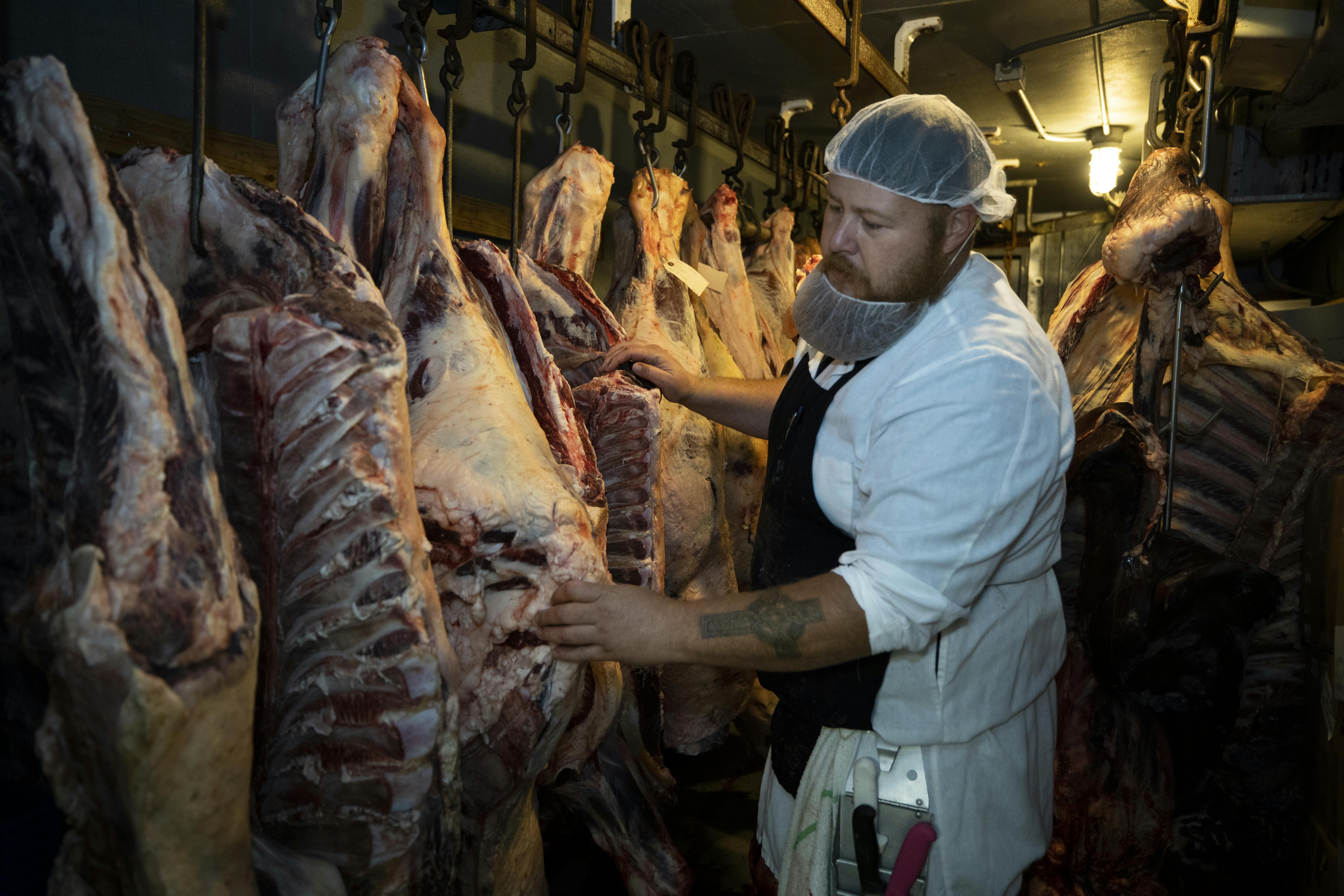|
 Brent Stirton/Getty | |||
| The coronavirus pandemic has wreaked havoc across America for the better part of the year, and few have felt its brunt more than our essential workers. We interact with some of these workers at grocery stores and pharmacies and anywhere else we buy the basic necessities that keep our lives going. But there are many other workers toiling away throughout those supply chains, and that’s where some of the pandemic’s worst horror stories are hidden. The Iowa Capital Dispatch reported this week on a wrongful death lawsuit against Tyson Foods over its pork processing plant in Waterloo, Iowa. One manager is “alleged to have explicitly directed supervisors to ignore symptoms of COVID-19,” forcing employees to work even when showing symptoms that they might be ill. Other managers are said to have pointedly avoided the shop floor, fearful of contagion, while plant supervisors denied confirmed cases among the workforce and Tyson executives lobbied Iowa Governor Kim Reynolds for liability protections. But the most harrowing allegation of all is that plant manager Tom Hart “organized a cash-buy-in, winner-take-all betting pool for supervisors and managers to wager how many plant employees would test positive for COVID-19.” This was in the middle of April, around the time that Waterloo Mayor Quentin Hart called for the plant to be closed amid widespread “warnings that workers were in danger due to inadequate protection from the virus.” Throughout the pandemic, workers at places like the Waterloo plant have been sounding alarms about the inadequate measures their employers are taking to protect them from the virus. These warnings have mostly fallen on deaf ears, with catastrophic consequences. HuffPost’s Dave Jamieson reported in October that data from the Occupational Safety and Health Administration revealed a deadly pattern:
| |||
| Advertising  | |||
| As Jamieson explained on Twitter around the time of his reporting, “What’s unsettling to think about is during that [17-day] lag time, OSHA is basically just sending a letter to the potentially hazardous employer asking if they have a game plan, and then closing the case soon thereafter.” Even with death around the corner, there was no help on the way. The pandemic has exposed so many fault lines in American life, our lack of labor protection chief among them. There are steps a Biden administration could take to address this. As Thomas Geoghegan explained this week at TNR, the next president can use his executive authority to revitalize labor rights by requiring, wherever possible, that federal government contractors have a collective bargaining agreement. “Such an executive order would do more to revive the labor movement than many a federal law—and it wouldn’t require Mitch McConnell’s permission,” Geoghegan wrote. To build a better future, we need to find ways to build what he refers to as “solidarity in the culture.” But there are more than a few 17-day periods between now and a new administration, during which time a nation of laborers will wake up each morning to tend to their vital posts. These essential workers will be staking their lives each day, in a hopeful gamble that they’ll be able to put food on their tables and survive the pandemic. It’s horrific to think that in some secure room, free from worry, powerful men are betting against them. —Jason Linkins, deputy editor | |||
 | |||
| The aftermath of the election is taking shape on our pages, where Jonathan V. Last has taken a gravedigger’s spade to what was once the Republican Party, Osita Nwanevu has found more than ample reason to defend the Democratic Party’s leftist flank from the accusation that it’s responsible for the party’s underperformance, and Trump-era chronicler David Roth finally gets to the end of the story he’s spent four years telling about this terrible president of ours. Osita and Alex Shephard have also assayed Barack Obama’s resurgence in the news on the back of his new book. Matt Ford tries to make sense of what Lindsey Graham has become. And new contributor Jacob Silverman sizes up Trump’s sudden interest in bringing troops home from Afghanistan. Check out The Soapbox for plenty more. | |||
| Advertising  | |||
 | |||
| Support Independent, Issue-Driven Journalism | |||
| | |||
| Copyright © 2020 The New Republic, All rights reserved. | |||
